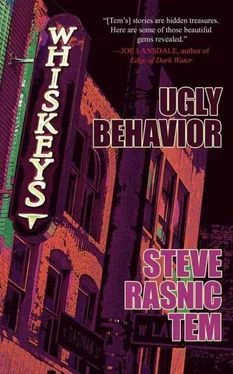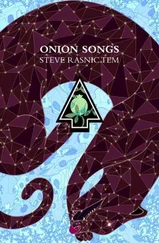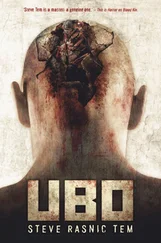Steve Tem - Ugly Behavior
Здесь есть возможность читать онлайн «Steve Tem - Ugly Behavior» весь текст электронной книги совершенно бесплатно (целиком полную версию без сокращений). В некоторых случаях можно слушать аудио, скачать через торрент в формате fb2 и присутствует краткое содержание. Год выпуска: 2012, ISBN: 2012, Издательство: New Pulp Press, Жанр: Ужасы и Мистика, на английском языке. Описание произведения, (предисловие) а так же отзывы посетителей доступны на портале библиотеки ЛибКат.
- Название:Ugly Behavior
- Автор:
- Издательство:New Pulp Press
- Жанр:
- Год:2012
- ISBN:978-0-982-84369-7
- Рейтинг книги:5 / 5. Голосов: 1
-
Избранное:Добавить в избранное
- Отзывы:
-
Ваша оценка:
- 100
- 1
- 2
- 3
- 4
- 5
Ugly Behavior: краткое содержание, описание и аннотация
Предлагаем к чтению аннотацию, описание, краткое содержание или предисловие (зависит от того, что написал сам автор книги «Ugly Behavior»). Если вы не нашли необходимую информацию о книге — напишите в комментариях, мы постараемся отыскать её.
Ugly Behavior — читать онлайн бесплатно полную книгу (весь текст) целиком
Ниже представлен текст книги, разбитый по страницам. Система сохранения места последней прочитанной страницы, позволяет с удобством читать онлайн бесплатно книгу «Ugly Behavior», без необходимости каждый раз заново искать на чём Вы остановились. Поставьте закладку, и сможете в любой момент перейти на страницу, на которой закончили чтение.
Интервал:
Закладка:
Steve Rasnic Tem
UGLY BEHAVIOR
Introduction
I’m not particularly known as a writer of violent stories. But ugly stories, tales about the terrible things we do to ourselves and to each other, have always accounted for a portion of my work. (And of course there are those who believe all tales of crime and horror—whether supernatural or not—are by definition “ugly” and do not care to read about these things. A collection such as Ugly Behavior would not be for them.) Both for those readers who appreciate this sort of thing, and for readers who would prefer not to encounter this other mode of mine, I’ve put all these ugly stories together into one box. It’s that box under your bed, pushed all the way back against the wall, the one that takes some effort to get to, the one your momma doesn’t know about (or at least, the one you like to think she doesn’t know about).
As ubiquitous as that age-old reader’s question, “Where do you get your ideas?” is that question specifically put to crime and horror writers, “Why do you want to write of such things?” or perhaps more to the point, “Why would you want to tell such an ugly story?”
In my case people often say, “But you look so peaceful… you seem so optimistic.” People see this as a contradiction. In truth, I am an optimist. I believe wonderful things can come out of the most terrible events. I also believe life is hard enough for most people and we have no business making it even harder if that can be avoided. I believe we have a duty to each other to be as kind as possible. And I want my kids and grandkids to surround themselves with good and kind people.
I also believe the world is full of predators and the vilest kinds of monsters. People are capable of the ugliest behavior. For me, to ignore these things is to ignore the deadly snake in the room. We need to know what we’re up against, so that we can really appreciate what it means to “behave honorably.”
The other thing that sets these stories apart from the majority of my work is that no fantasy elements are involved. The terrors here are the daylight terrors of human interaction.
At times transcendence and transgression appear to be unexpectedly close neighbors. Most of us, I think, crave some sort of transcendence. We want to move from where we are in our lives to a better place. But when we cannot achieve that, some of us will choose transgression. Of course sometimes transgressing societal norms may be the only way to achieve some kind of social evolution. But we cannot always tell the difference between that positive action and its destructive counterpart. We become so eager to escape the limits of everyday life we are just satisfied that there’s been any kind of movement at all.
—Steve Rasnic Tem, 20102 PM: The Real Estate Agent Arrives
In the backyard, after the family moved away: blue chipped food bowl, worn-out dog collar, torn little boy shorts, Dinosaur T-shirt, rope, rusty can, child’s mask lined with sand. In the corner the faint outline of a grave, dog leash lying like half a set of parentheses. Then you remember. The family had no pets.
Saguaro Night
My father used to say he loved the southwest because here it’s obviously the landscape that matters and not the people. People who try to compete with their buildings, their roads, and their works are all just too pitiable, as if they were desperate for God’s attention. “In the process they came damn near to ruining this country,” he’d say. “I mean, look at Phoenix.” Never mind that I liked Phoenix; both as child and daughter my opinion on the matter didn’t count. If my brother had lived past the age of six his opinion might have had more weight, but I honestly doubt it, even though I’ve held onto the notion now and then as a convenient source of resentment.
Once or twice a year my father would drive me up to the Grand Canyon just to put me in touch with something “beyond man’s power to alter.” To me the Canyon was just this great big hole in the ground, but I knew better than to say that to my dad. Dad said he was glad he was a painter and not an architect in the face of such awe-inspiring vistas. This landscape, he said, required an artist already in sympathy with that world where human concerns were irrelevant.
My father was the perfect artist for that landscape. He had a “problem” with human beings, was the way he put it. Not a fear, exactly, but an obvious unease. Not exactly a hatred, or at least not a hatred he would admit to, but a profound distrust. If you look closely at his most famous painting, “Saguaro Night,” you can see signs. Row after row of blackened saguaro lean forward as if marching toward a distant wrinkle of mountains. The sky behind and above all this is deep, inky, unfathomable. The painting seems simple enough at first glance, but then you start thinking why are the cacti so black? Has there been a fire? I always thought they looked as if they were suffering. Maybe they’re not cacti after all? My father didn’t paint them realistically, exactly, but in a style he called tormented expressionism. The lines are tortured, the shapes distressed, the colors despairing. No one really “likes” the painting, although it has fetched incredible prices over the last few years. I’ve heard that the last two owners couldn’t bear to hang it in their homes. I’m told that once an old woman, a concentration camp survivor, burst into tears upon seeing it in a traveling exhibition of my father’s work.
One cactus is not black—that small one in the background, on the edge of the right upper quadrant, a shimmering red-orange laid in with a few quick strokes, hardly formed, really. But so compelling. Some people say that’s where the other cacti are leaning toward, their cactus deity. I’m not so sure about that, but I do know that’s where the eye goes.
So my father’s primary artistic inspiration was a distrust of human beings. Like any good daughter, I became his opposite. My weakness as an artist, and as a human being, is that I’ve trusted and loved people too much. My paintings, and my relationships, have been overwrought, sentimentalized, unrealistic affairs. Critics have pointed out superficial resemblances in our work, always to my detriment. Certainly I learned my technique from him, but I’ve always taken it too far—I lack his iron discipline. And we’re both attracted, at least initially, to drunks and addicts. But after a year or so of passionate involvement, my father always leaves his unfortunate choices behind. He was with my mother a record two years, two months. I usually stay with my lovers until they ruin me.
And yet, strangely enough, for all this I always knew that my father both appreciated and loved me. I was always the only one.
My father had lived by himself on a small ranch outside Tucson for over twenty years when I came to stay with him the last few years of his life. I was running from yet another bad relationship. I suppose because this one had been so particularly bad, I ran to my father. Dad’s relationships, also, had always been spectacularly bad. But he survived them, even thrived on these dramatic break-ups. He always appeared more content afterwards, and his paintings only improved. I decided this was yet another area where I could learn from his technique.
“So this young man, do you suppose he’ll be following you here?”
“God, I hope not.”
“There is no god, sweetheart,” he corrected me quietly, matter-of-factly, as had always been his way. I had been watching him paint—he didn’t mind; he said he’d just pretend I was yet another saguaro cactus—and I wondered at what he was working on. All his paintings those last few years started the same—he painted the blacks first, the endless sky, the mirroring ground. Much later more specific objects would appear, as if he’d shone a flashlight on them, or rubbed the night away just enough to reveal them. The beginning he made that day would evolve into the painting which became known as “Saguaro Night.”
Читать дальшеИнтервал:
Закладка:
Похожие книги на «Ugly Behavior»
Представляем Вашему вниманию похожие книги на «Ugly Behavior» списком для выбора. Мы отобрали схожую по названию и смыслу литературу в надежде предоставить читателям больше вариантов отыскать новые, интересные, ещё непрочитанные произведения.
Обсуждение, отзывы о книге «Ugly Behavior» и просто собственные мнения читателей. Оставьте ваши комментарии, напишите, что Вы думаете о произведении, его смысле или главных героях. Укажите что конкретно понравилось, а что нет, и почему Вы так считаете.












